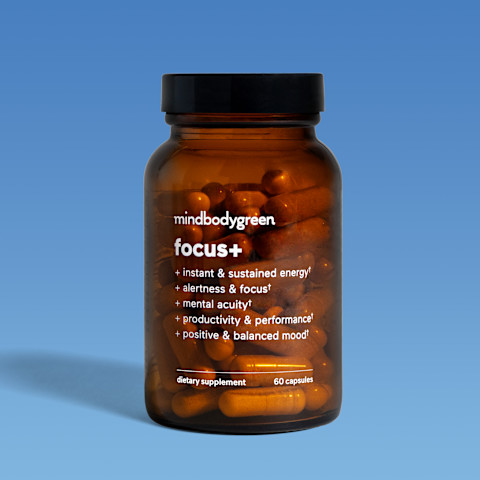I Traded My Afternoon Coffee For This Supplement & Never Looked Back

Before I dive in, I want to make one thing very clear: I am not anti-coffee. So when I found a product that worked better at keeping me alert than my afternoon brew—and didn't even make me miss it—it just felt selfish not to share.
My relationship with coffee & why I've traded my afternoon cup for focus+
I started drinking black coffee when I was 16 years old. To say it's an essential part of my daily routine would be an understatement. What's less essential, though, is that third (sometimes fourth) cup in the afternoon. You know that room-temperature brew that just lingers in the mug as the clock ticks on? You're not quite sure you even want it anymore, but you still can't seem to put it down.
(As the saying goes, too much of a good thing…)
By the time 3:30 p.m. rolls around, my eyelids grow heavy and my motivation wanes. In short: I'm crashing. When this pattern started interfering with my ability to focus at work, I knew something needed to change. Enter: mbg's focus+. This targeted nootropic supplement delivers sustained and focused energy, minus the crash.*
How focus+ works
The focus+ formula works by combining both instant- and sustained-release caffeine. The former promotes alertness and productivity—just like my first and second cup of coffee might.* Whereas the latter, actually raises caffeine levels in the body for a longer period of time.* This longer-term release helps combat the mental fatigue or "crash" that tends to follow my third or fourth cup.*
In addition to the instant- and sustained-release caffeine straight from the original plant source, the science-backed formula contains organic lion's mane mushroom extract, L-theanine, guarana, Panax ginseng, and vitamin B12 to help improve focus and concentration while also supporting a balanced mood.*
The takeaway.
While I'll never give up my daily coffee, the ingredients in focus+ have helped me eliminate those unnecessary (and unhelpful) afternoon cups—and honestly, I don't even miss them!
Don't just take my word for it, though, here's what neuroscientists and other health experts have to say about the innovative nootropic supplement.

